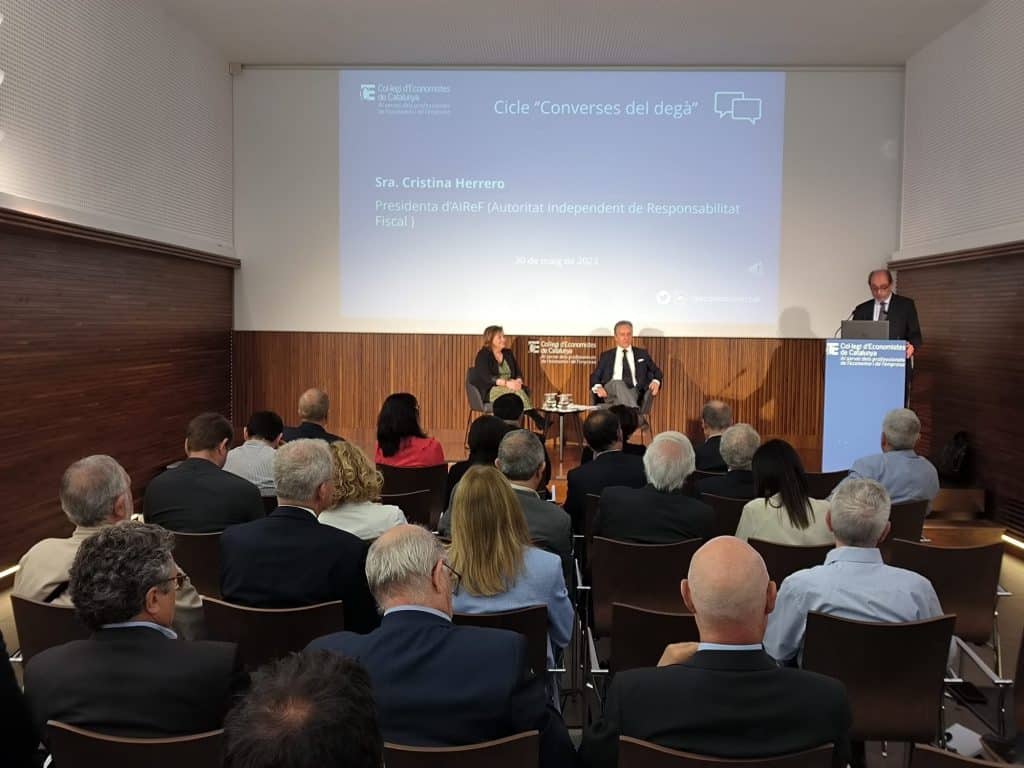
The president of the Independent Authority for Fiscal Responsibility (AIReF), Cristina Herrero, took part today in the ‘Dean’s Conversations’ cycle of conferences of the Association of Economists of Catalonia, together with Carles Puig de Travy, dean of the Association. During the event, Cristina Herrero reviewed the country’s economic and fiscal situation, as well as the powers and functions of the institution she presides.
Cristina Herrero recalled the origins of AIReF, a body created in 2013 thanks to the European impulse, which over the last ten years has become the national benchmark institution for fiscal policy. Furthermore, in 2021 it incorporated the additional function of evaluating public spending. By fulfilling these two functions, AIReF aims to be useful to society with the sustainability of public finances at the core of its activity.
The president recalled that AIReF is an institution that acts with full organic and functional independence, as guaranteed by the Law in different ways, such as the policy for appointing the presidency or the way it is funded. In fact, independence is one of the institution’s guiding principles, along with transparency and accountability. AIReF publishes all its analyses on its website, submits itself to external evaluations at its own initiative and has an Advisory Council that supports the institution on strategic issues and specific matters. In addition, the president appears at least twice a year in Parliament.
However, Cristina Herrero asserted that AIReF’s independence cannot be taken for granted and must be protected and guaranteed given that, to date, it still has cracks in it. In her opinion, a future reform of AIReF should reinforce this autonomy and strengthen certain additional aspects to further safeguard its independence.
The president also reviewed the country’s economic and fiscal situation, as well as the institution’s latest forecasts, which point to real GDP growth that will remain close to 2% in 2023 and 2024 as a whole, somewhat lower than the Government’s projections. AIReF also forecasts a general government deficit of 3% of GDP in 2026, 5 tenths of a percentage point higher than that projected by the Government. The debt projections, for their part, point to a fall of almost 6 GDP points over the next four years, to 107.3% of GDP in 2026, although in the medium term debt will stabilise at levels above 100% of GDP.
In this context, the president recalled that AIReF has been recommending for some time that a medium-term strategy be put in place to generate the fiscal space needed to reduce the current level of debt and to be able to cope with future shocks. In her opinion, this recommendation is now an unavoidable task given the vulnerability of public accounts and the imminent reform of the European fiscal rules framework, which revolves around this emphasis on the sustainability of public finances in the medium and long term.






